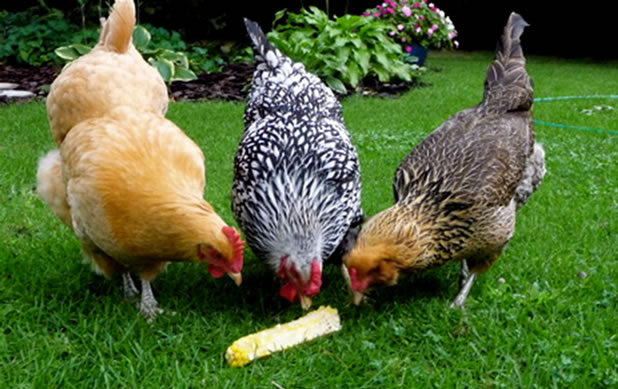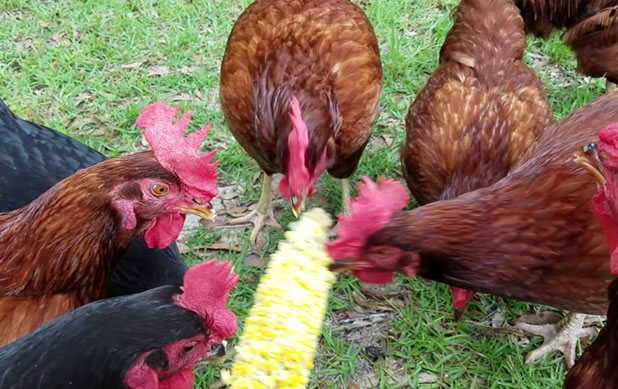January, 2003 Proverb: “A chicken eats corn, drinks water and swallows little pebbles, but still complains of having no teeth. If she had teeth would she eat steel?” – Yoruba and Idanre (Nigeria)
A chicken eats corn, drinks water and swallows little pebbles, but still complains of having no teeth. If she had teeth would she eat steel? (Literal English)

Yoruba and Idanre ( Nigeria ) Proverb
Background, Explanation, Meaning and Everyday Use
This is similar to another Yoruba and Idanre Proverb in Nigeria:
Omo ti a bi lana, to ni ohun o ba wa se ere, ki a to bi nko?
The child we had yesterday says he/she will not play with us; before we had him/her who did we play with? (Literal English)
I heard both these Nigerian proverbs from my Mum and read them in my school books and they have stuck since I was about eight years old learning to write Yoruba. Proverbs here in Nigeria evolve and are drawn primarily from nature (as almost all the other proverbs). The first is an old funny favorite of mine, a lighter way of giving advice that might otherwise sound unfeeling, critical or parochial. Most times it needs no explanation or further comment to make its mark.
 Biblical Parallels
Biblical Parallels
Psalm 147:10-11: “He delighteth not in the strength of the horse: he taketh not pleasure in the legs of a man. The Lord taketh pleasure in them that fear him, in those that hope in his mercy” (King James Version). Similarly II Peter 1:3: “Has given to us all things that pertain to life and godliness, through the knowledge of Him.” Even more Matthew 6:27-33: “For who by worrying can add a second to his life … therefore take no thought for what you shall eat or drink … For your heavenly father knows you have need of these things. But, seek you first the kingdom of God and His righteousness and all these things will be added unto you.” And Philippians 2:13: “For God is at work in you, both to will and to work for his good pleasure.”
Contemporary Use and Religious Application
Both proverbs express the need to accept life as it is and make the best of the present times and situations instead of complaining and sulking. The first says that you are more than good enough to accomplish what you want; think of the opportunities not the limitations. The second admonished one to “shape up” because the world was before you were and will be after you are not. Both refer to sulking/complaining persons or situations where one might have expressed a “nothing good can happen” feeling. That is, either sulking at God or despising one’s God-given attributes.
Miss. Olatundun A. Aroloye
P. O. Box 3475
Ikeja, Lagos, Nigeria
E-Mail: taroloye@yahoo.com
